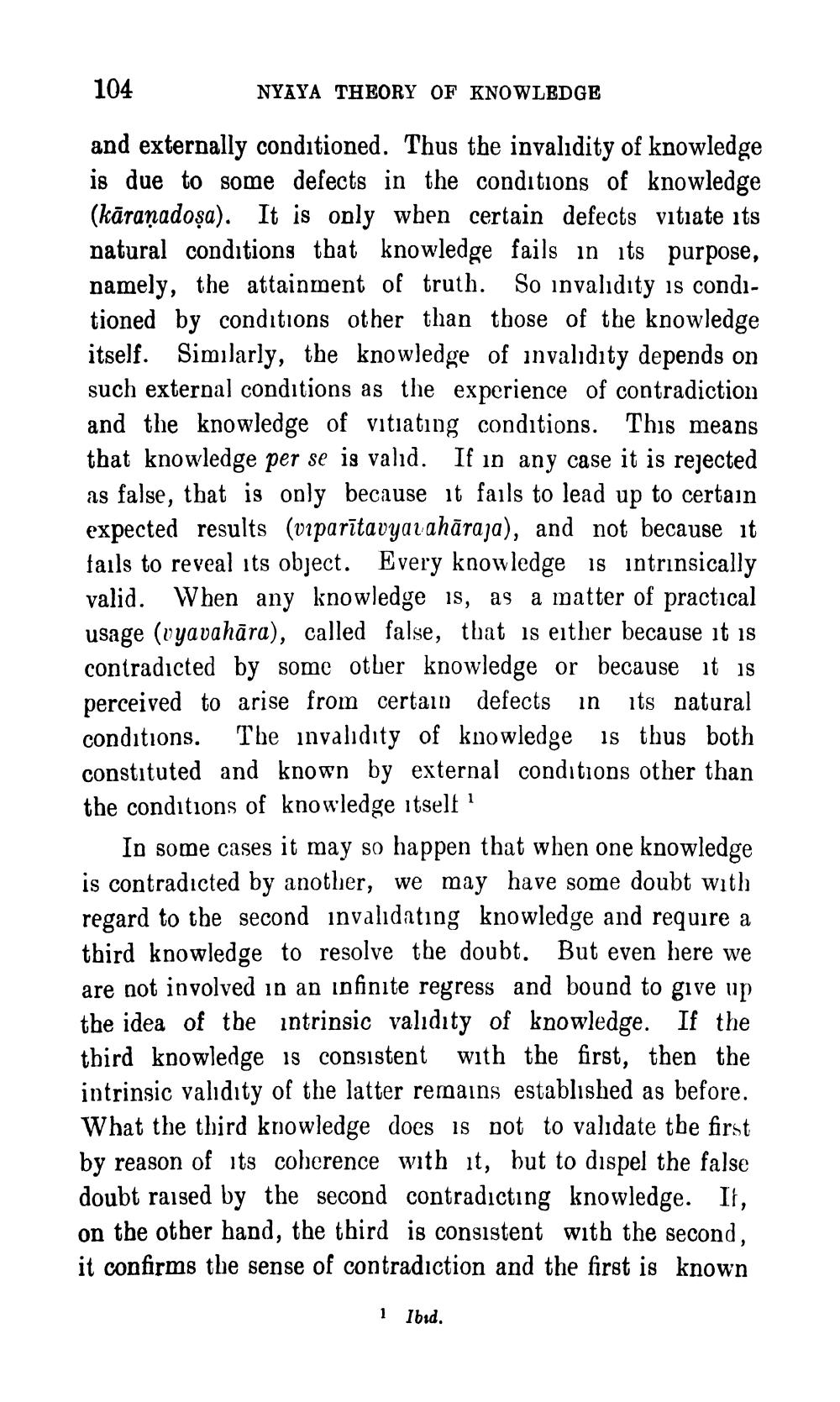________________
104
NYAYA THEORY OF KNOWLEDGE
and externally conditioned. Thus the invalıdity of knowledge is due to some defects in the conditions of knowledge (kāraṇadoșa). It is only when certain defects vitiate its natural conditions that knowledge fails in its purpose, namely, the attainment of truth. So invalidity is conditioned by conditions other than those of the knowledge itself. Similarly, the knowledge of invalidity depends on such external conditions as the experience of contradiction and the knowledge of vitiating conditions. This means that knowledge per se is valid. If in any case it is rejected as false, that is only because it fails to lead up to certain expected results (viparītavyar ahāraja), and not because it fails to reveal its object. Every knowledge is intrinsically valid. When any knowledge is, as a matter of practical usage (vyavahāra), called false, that is either because it is contradicted by some other knowledge or because it is perceived to arise from certain defects in its natural conditions. The invalidity of knowledge is thus both constituted and known by external conditions other than the conditions of knowledge itself
In some cases it may so happen that when one knowledge is contradicted by another, we may have some doubt with regard to the second invalıdating knowledge and require a third knowledge to resolve the doubt. But even here we are not involved in an infinite regress and bound to give up the idea of the intrinsic valıdıty of knowledge. If the third knowledge is consistent with the first, then the intrinsic valıdıty of the latter remains established as before. What the third knowledge does is not to validate the first by reason of its coherence with it, but to dispel the false doubt raised by the second contradicting knowledge. It, on the other hand, the third is consistent with the second, it confirms the sense of contradiction and the first is known
1
Ibid.




